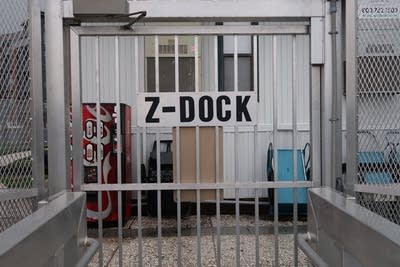My economy: Life as a liveaboard in Southwest D.C.
Darryl Madden’s life on a boat started as a simple solution for affordable housing. Now he wouldn’t have it any other way.

In 2005, when Darryl Madden first started looking for somewhere to live in Washington, D.C., he considered renting. But he quickly realized buying a place made more economic sense.
And then an unusual opportunity presented itself — the chance to buy a boat for $70,000 and live on it in bustling Southwest D.C. Madden figured at the very least he could use the boat as transitional, affordable housing. So he bought it with plans to live aboard three, maybe four nights a week. But he fell in love with the lifestyle and the community, and quickly became a full-time liveaboard boater.
Thirteen winters later, Madden is still living at the Wharf Gangplank Marina in Southwest D.C. and loving every minute of it — even when that means hard work and repairs.
My name is Darryl Madden. I’m a communications consultant. I am a longtime resident of Southwest D.C., and I’ve been a long-term liveaboard boater for 13 winters.
I remember my first boat. I think I paid probably $70,000 for it. But the interesting thing about it is, you know, it’s very much like a mortgage. You can write off the interest, so there’s all that kind of economic advantages that happens to it.
I don’t know if owning a boat can be considered affordable housing, but relatively speaking, compared to some of the other condos that are now here dotting their way around Southwest D.C., it certainly is an option. Maintenance is the biggest thing involving a boat, so, you know, you have to stay vigilant with it.
So this is back in 2013. As most people do, you go through a spring commissioning. The mechanic that was assigned to do the work made a judgment in error and a fire ensued. Basically burned the boat to the waterline. It’s very humbling when you kind of leave and you go to work and then you come back and you realize that everything that you have is basically gone. Literally as the boat was continuing to burn, many of the people in this marina gathered things that I needed for the next 24 hours to help me to get through. The way that they surrounded me and supported me during that time was just something that I’ll absolutely never forget. I ask anyone, “Tell me of a community, particularly in a major urban environment like Washington, D.C., that not only do you know all the neighbors on your street but you know every neighbor three and four streets down.”
That is at the heart of what it’s like to live in a marina community.










